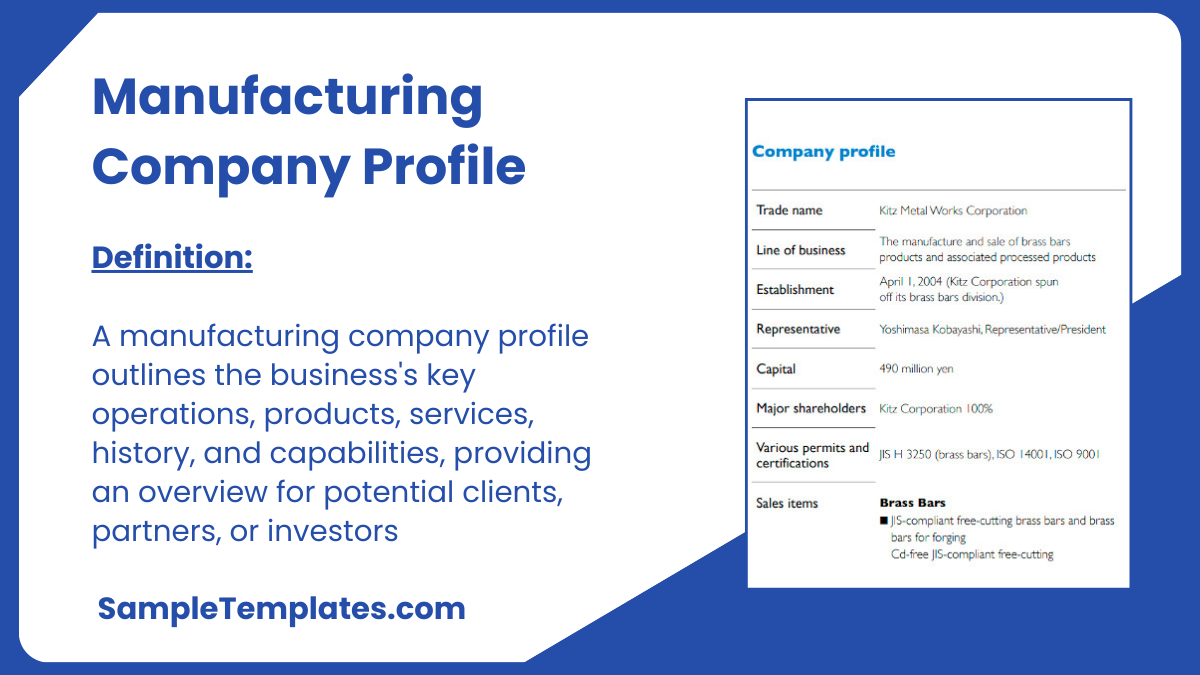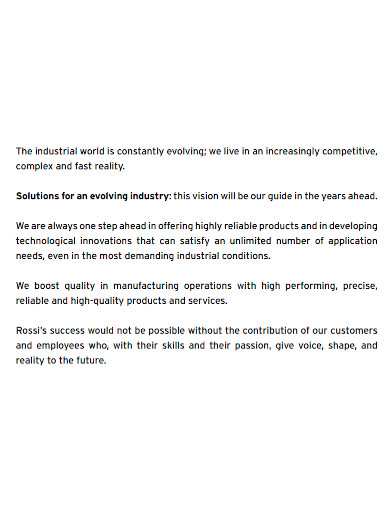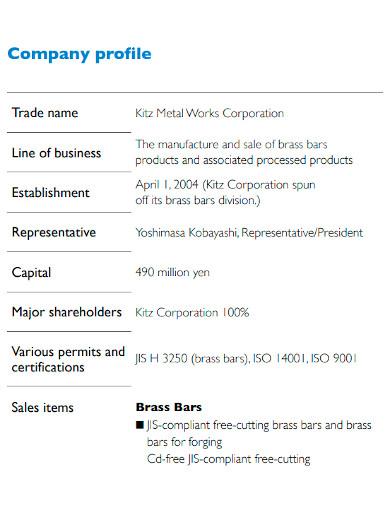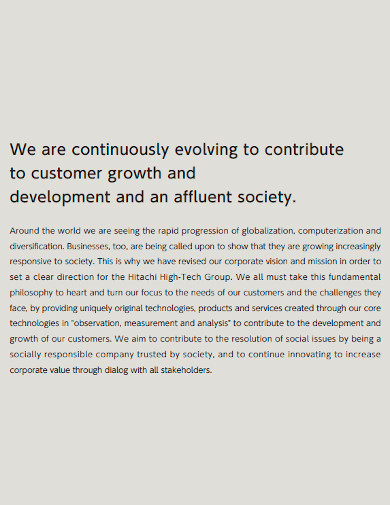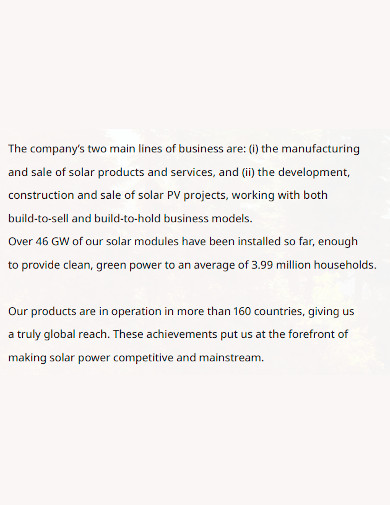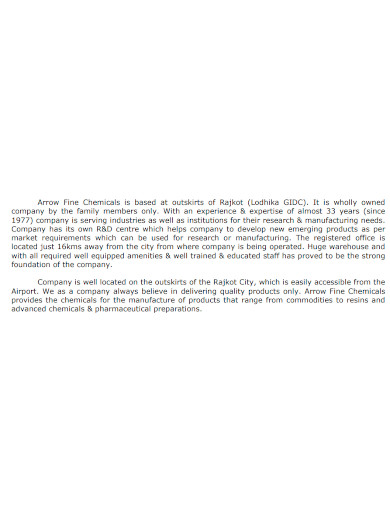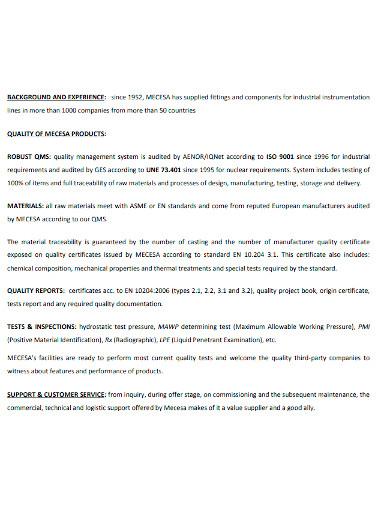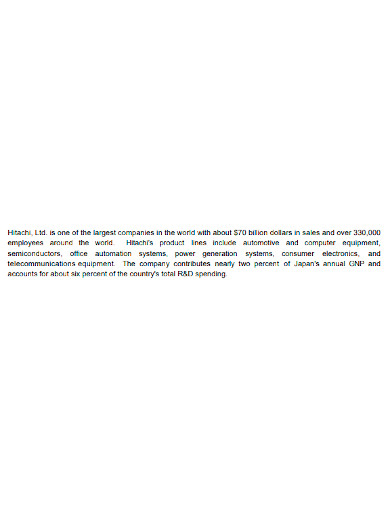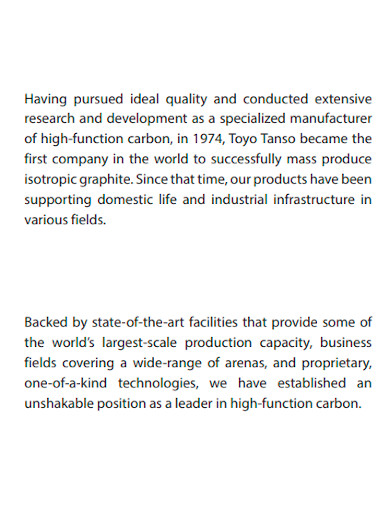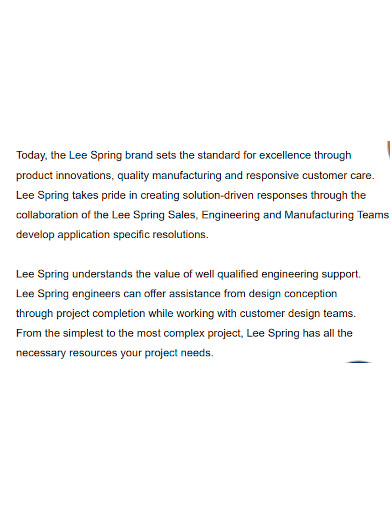Manufacturers are individuals or businesses that utilize components, technology, assembly lines, and human resources, along with raw materials to manufacture or make a finished product. These products will then be sold to suppliers or wholesalers who will then sell it to retailers to be sold to consumers. That is basically a massive simplification of the business supply chain, and manufacturers, is the first step in this supply chain. Manufacturers make or provide raw materials to be distributed to other businesses.
The general public don’t usually buy directly from manufacturers, but most if not all of the products we use everyday come from them. Manufacturers often use assembly lines where products are put together in sequence from one workstation to the next. The process can be very simple, or really complicated. Although most manufacturers nowadays use machines, robots, and computers, a lost of them still rely on massive populations of human resources.
Manufacturers heavily rely on already established business profile with their suppliers, wholesalers, and other customers. So there’s really no need to fret on whether their products are going out or not, as long as demand is there, and the supply chain keeps moving, manufacturers will keep on manufacturing. But, suppose manufacturers want to attract more clients and investors, they don’t rely much on heavy advertising, so one way to provide an effective and efficient marketing strategy for their company is by making a company profile. Check out these company profile samples listed below to help you draft a well written company profile today.
8+ Manufacturing Company Profile Samples
1. Manufacturing Company Profile
2. Manufacturing Company Profile PDF
How to Write a Manufacturing Company Profile?
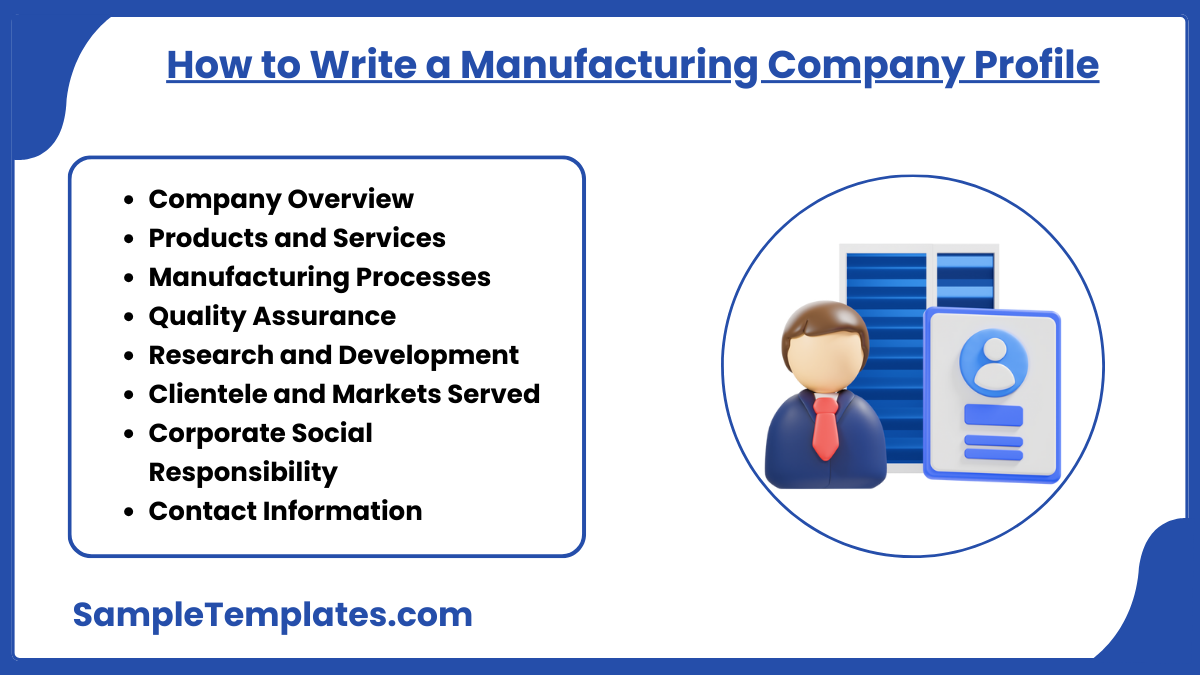
- Company Overview: Start with a brief history of your company, including its founding year and significant milestones. Outline the core mission and vision to set the tone. You can also see more on Garments Company Profile.
- Products and Services: Detail the products you manufacture and the services you offer. Highlight any special features or competitive advantages of your products.
- Manufacturing Processes: Describe your manufacturing processes. Include information on technologies used, production capacity, and any innovative techniques that set you apart.
- Quality Assurance: Explain your quality control measures and certifications that reassure potential clients of your commitment to high standards. You can also see more on Furniture Company Profile.
- Research and Development: Mention any research and development activities. Highlight how your company innovates or adapts to changes in technology and market demands.
- Clientele and Markets Served: Provide information about your main markets and key clients. This illustrates the trust and reliability your company commands in the industry.
- Corporate Social Responsibility: Describe any CSR initiatives or ways your company contributes to environmental sustainability. This can enhance your company’s image and appeal to ethically minded clients.
- Contact Information: Conclude with clear and accessible contact details, encouraging potential clients and partners to reach out for more information or business opportunities. You can also see more on Engineering Company Profile.
3. Company Profile Format
4. Manufacturing Company Profile Sample
5. Company Profile For Manufacturing Company
Why you Need the Company Profile?
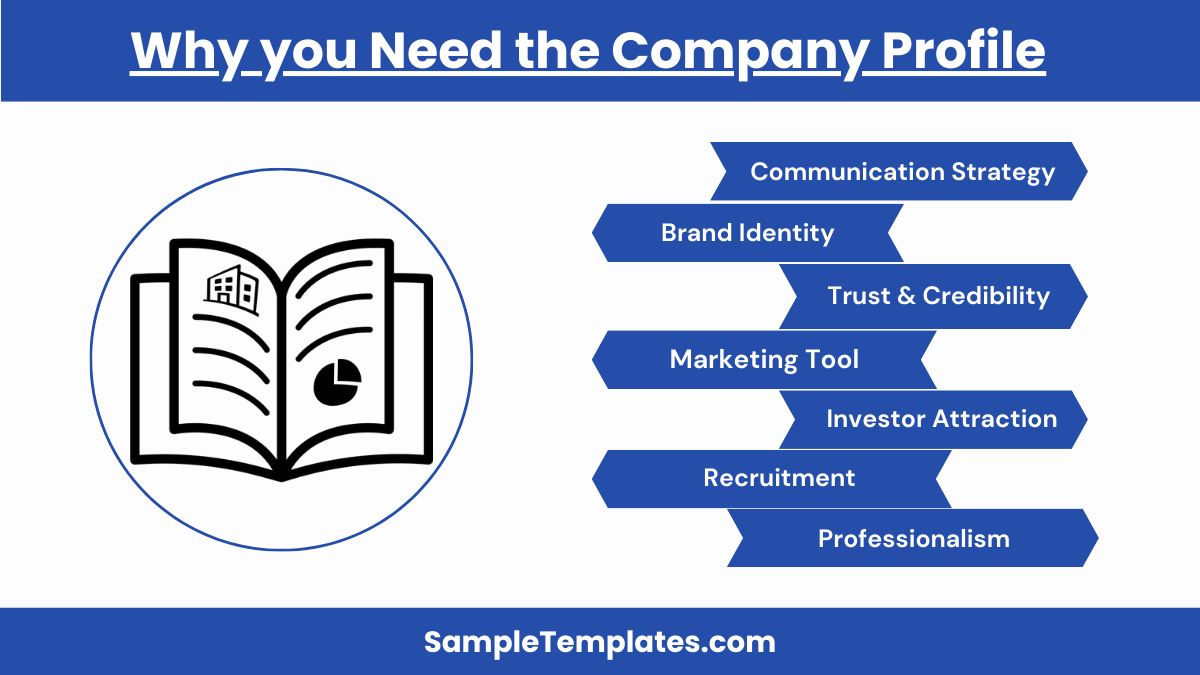
- First Impressions Matter: It provides the first comprehensive introduction of your business to potential clients, investors, and partners, setting the tone for what they can expect. You can also see more on Wholesale Company Profile.
- Brand Identity: A company profile helps in establishing and communicating your brand identity, showcasing your unique values, mission, and the ethos that set you apart from competitors.
- Trust and Credibility: By detailing your achievements, certifications, and compliance with industry standards, a company profile builds trust and credibility with your audience.
- Marketing Tool: It acts as an effective marketing tool, giving detailed insights into your products and services, and can be used in various marketing campaigns to attract new business. You can also see more on Trading Company Profile.
- Investor Attraction: For startups and companies seeking investment, a well-crafted profile outlines the business’s potential, stability, and growth prospects, attracting potential investors.
- Recruitment: A compelling company profile can attract top talent by highlighting your corporate culture, growth opportunities, and the benefits of joining your team.
- Professionalism: Presenting a polished and detailed company profile demonstrates professionalism and shows that your business is serious and well-established. You can also see more on Construction Company Profile.
- Communication Strategy: It serves as a foundational document that ensures consistency in how your business is presented across various platforms and communications, helping maintain a cohesive message.
6. Manufacturing Company Profile Template
What is the description of a manufacturing company?
A manufacturing company is an organization that transforms raw materials or components into finished goods through various production processes. These companies typically operate in sectors such as automotive, electronics, textiles, or food production. They manage the entire manufacturing lifecycle, including product design, procurement of materials, production, quality control, and distribution. Manufacturing companies aim to optimize efficiency, reduce costs, and produce high-quality goods in line with market demands. The nature of their operations can range from mass production to customized, specialized manufacturing, depending on the industry and product types.
7. Formal Manufacturing Company Profile
8. Manufacturer Company Profile
How to Introduce a Company?
Introducing a company effectively involves providing a concise and engaging overview that captures the audience’s attention and communicates key information. Here’s a step-by-step guide:
- Start with a Greeting: Begin with a warm and professional greeting to set a positive tone. Consider the context of the introduction, whether it’s a meeting, presentation, or networking event. You can also see more on Food Company Profile.
- State the Company Name: Clearly state the name of the company. If applicable, include any relevant branding or taglines that represent the company’s identity.
- Provide a Brief Overview: Offer a brief overview of the company, highlighting its industry, core products or services, and any unique selling points. Keep it concise and focused on key information.
- Share Company Values and Mission: Briefly mention the company’s core values and mission. This provides insight into the company’s principles and goals. You can also see more on Joint Venture Company Profile.
- Highlight Achievements or Milestones: Mention any notable achievements, awards, or milestones that showcase the company’s success and credibility.
- Introduce Key Team Members: If appropriate, introduce key members of the leadership team or noteworthy employees. This personalizes the company and adds a human touch.
- Discuss Market Presence: Mention the company’s market presence, whether it’s a local, national, or international player. This provides context for the scale of operations.
- Emphasize Customer Focus: Highlight the company’s commitment to customer satisfaction survey and any customer-centric initiatives. This reinforces a customer-focused approach.
- Invite Questions or Interaction: Encourage the audience to ask questions or seek additional information. This opens the door for further engagement and dialogue.
- Conclude with Contact Information: Conclude the introduction by providing relevant contact information, such as a website, email, or phone number, so interested parties can connect for more details.
Remember to tailor the introduction to the specific audience and context. Whether it’s a formal business meeting agenda, a networking event, or a presentation, adapting the introduction to suit the setting enhances its effectiveness.
9. General Manufacturing Company Profile
What is a Manufacturing Company Profile?
Company profiles are an effective way to provide a quick snapshot of your company to potential clients and investors that you may want to do business with. A well written company profile can do this relatively easily and can quickly boost your company’s customer engagement. Company profiles usually include the background of your company, its history and how it became it is today, the milestones and achievements you have acquired over the years, the products and services you offer, and more, depending on what you think is best to present. Just remember that the goal here is to make the target audience care about your company and its services, enough to actually make them want to avail its products and services
FAQs
1. What industries does your manufacturing company serve?
Our manufacturing company specializes in serving industries such as automotive, electronics, and consumer goods. Explore our diverse capabilities tailored to meet industry-specific needs. You can also see more on Startup Company Profile.
2. What types of products does your manufacturing company produce?
We manufacture a wide range of products, from precision components to innovative consumer goods. Our product portfolio reflects our commitment to quality and innovation.
3. What sets your manufacturing company apart in terms of technology?
Our manufacturing processes leverage cutting-edge technology, ensuring efficiency, precision, and high-quality output. Discover how our technological advancements contribute to superior manufacturing. You can also see more on Supplier Company Profile.
4. How does your manufacturing company prioritize sustainability?
Sustainability is a core value. Learn about our eco-friendly practices, waste reduction initiatives, and commitment to environmentally responsible manufacturing.
5. What are the two types of manufacturing?
The two types are Repetitive Manufacturing, and Process Manufacturing.
6. What does manufacturing industry mean?
Manufacturing is any industry that makes products from the use of raw materials and manual labor or machinery.
7. What is the purpose of manufacturing?
The main objective of the manufacturing industry is to produce as many goods as possible in the least expensive way possible. That’s why most manufacturers use assembly lines or heavy equipment checklist to do sections of work in different workstations.
In conclusion, our manufacturing company is a dynamic force in the industry, combining cutting-edge technology, custom solutions, and a commitment to sustainability. With a global reach and a focus on quality, we stand as a reliable partner for diverse industries, delivering excellence in every product and solution we provide.
Related Posts
Project Proposal Samples
Construction Company Profile Samples
FREE 10+ Engineering Company Profile Samples in PDF | MS Word
FREE 10+ Sample Automotive Company Profile Templates in PDF
FREE 9+ Interior Design Company Profile Samples [ Furniture, Architecture, Construction ]
FREE 10+ Supplier Company Profile Samples [ Construction, Medical, Stationery ]
FREE 10+ Wholesale Company Profile Samples in PDF | DOC
FREE 14+ Startup Company Profile Samples [ Software, Construction, Incubator ]
FREE 11+ One Page Company Profile Samples in PDF | DOC
FREE 10+ Retail Company Profile Samples [ Store, Pharmacy, Associate ]
FREE 9+ Photography Company Profile Samples [ Studio, Video, Services ]
FREE 9+ Boutique Company Profile Samples in PDF
FREE 10+ Recruitment Company Profile Samples [ Student, Agency, Consultancy ]
FREE 10+ Finance Company Profile Samples [ Risk, Industry, Home ]
FREE 10+ Architecture Company Profile Samples [ Design, Firm, Interior ]
